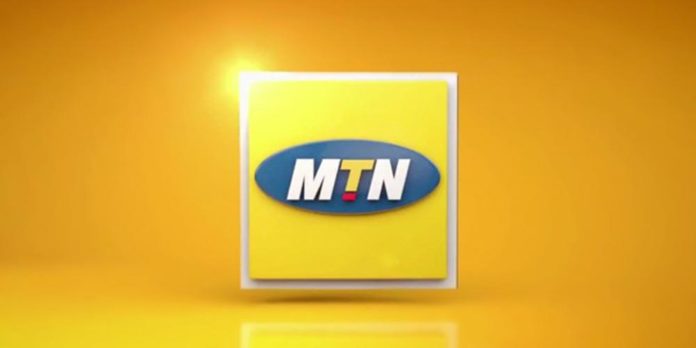By Jeph Ajobaju, Chief Copy Editor
MTN, Nigeria’s largest mobile telecom carrier, is also the biggest borrower on the Nigerian Stock Exchange (NSE) as it reported N578 billion total loans in the half year ended June 30 (H1 2021).
MTN ranks higher than all other companies listed on the NSE in terms of borrowing from banks and the debt market.
It relies on loans to drive operations, resulting in astronomical returns on average equity often in the higher double digits, according to analysis by Nairametrics.
MTN’s total external loan in the fourth quarter of 2020 (Q4 2020), which was N521.5 billion, rose 11 per cent in six months to H1 2021.
This places its debt at 2.8x its equity. Closest to MTN in relying on debt to boost operations and earnings is Nestle, whose debt to equity is 2.27x with annualised return on equity of nearly 60 per cent.
MTN’s return on average equity is just over 60 per cent.
Cement heavyweights
MTN focuses on increasing debt profile, but cement giants – Dangote Cement, Lafarge, and BUA – move in the opposite direction as they all record massive drops in their loan portfolio.
Dangote Cement, one of Nigeria’s largest companies by profit and the largest by market capitalisation, reduced external debts 30.5 per cent, from N493.9 billion in Q4 2020 to N197.9 billion in H1 2021.
Lafarge cut slashed debt 60.3 per cent to N19.75 billion, BUA 30.5 per cent to N191 billion.
No new equity was raised by the trio in H1 2021, as they focused on organic cash flows to repay debt.
Research by Nairametrics shows that the companies have repaid their debts from cash flows from operations combining them with higher trade creditors.
The three generated N469.7 billion in net cash flow from operations paying down N409.7 billion in debts.
Food processors
Just as MTN did, major food processing companies like Nestle, Flour Mills, and Honeywell relied heavily on debt to drive operations in H1 2021.
Their debt profile rose from N247 billion in Q4 2020 to N260 billion in H1 2021.
Flour Mills retained the most loan portfolio with N140.9 billion, lower than the N147 billion in Q4 2020.
Honeywell – enmeshed in controversy with the Central Bank of Nigeria (CBN) over its loans from FirstBank – increased loans from N59.4 billion to N67.6 billion.
Nestle also increased loans 29 per cent to N51.9 billion.
According to Nairametrics, it appears the strategy of these firms is to fund operations with debt in order to boost topline revenues and improve returns.
Food processing companies have seen a major profit boost since the start of the border closure and forex crisis that has hampered importation of competing goods and services.
For example, Flour Mills recorded N20.9 billion pretax profit in H1 2021 compared to N11.6 billion in H1 2020.
Thus, despite loading their balance sheets with debts, profits and margins remain high.
The strategy uses cheaper debts to fund operations and boost bottom line revenue, a well-known strategy for companies with high returns on assets, especially in a low-interest environment.
Brewery
Guinness and International Breweries also increased their debt portfolio in H1 2021 but Nigerian Breweries cut its debt.
International Breweries, Nigeria’s second largest brewer, increased its debt from N110.6 billion to N113.6 billion, one of the biggest on the NSE.
Most of its loans are dollar-denominated and obtained from CitiBank, New York.
Nigerian Breweries reduced its debt about 25.3 per cent to N68.2 billion by financing it from working capital, suggesting it paid down loans at the expense of creditors.
This is also a basic treasury strategy utilised by large multinationals with sound credit ratings among suppliers.
Brewers seem to have turned the corner in H1 2021 with all three recording a boost in revenues from selling more volumes while also increasing price.
Though margins remain a challenge, they may make enough to settle debts amid competition and higher costs.
Energy companies
Two of the major energy companies, Notore Chemicals and Seplat, reported greater debts in H1 2021 compared to Q4 2020.
Seplat’s debt balloon from N265.3 billion to N309.7 billion, Notore added about N8 billion to its own, taking it to N123.26 billion.
Seplat’s debt to equity ratio is manageable at 0.46, though it spends N46 of every N100 generated from operations on servicing debt.
Notore is in a more precarious situation with a debt to equity ratio of 2.61 and it is almost certain that the company will raise equity sooner, rather than later.
Its finance cost of N8.4 billion in H1 2021 is more than revenue of N5.3 billion.
Other small oil and gas firms like Ardova, Conoil, and Total also borrowed more in H1 2021 compared to H1 2020. Downstream oil and gas companies typically fund their operations with debt.
Conglomerates
Transcorp and UACN, two of the major conglomerates in the country, also loaded up debt in H1 2021.
Transcorp increased debt from N119 billion in Q2 2020 to N125 billion in H1 2021, with debt more than its Net Assets.
UACN also grew debt from N4.5 billion to N17.5 billion despite selling its real estate arm to Custodian Insurance.
But profits have not been negatively affected by debt increase. Both companies reported higher profits of more than 600 per cent to about N7 billion.
Varying strategies for handling debt
Data suggests the tactics for dealing with debt vary across sectors. However, companies in the same sector have adopted the same strategy for debt.
Apart from a few, the rest have avoided the negative impact debt has on profits, with some even posting higher returns on average equity.
Finance cost has been cheap for these businesses, allowing them to tap into a mix of bank debt and long and short term debt securities to finance operations. Some paid down debts from cash flows from the business rather than raise equity.













